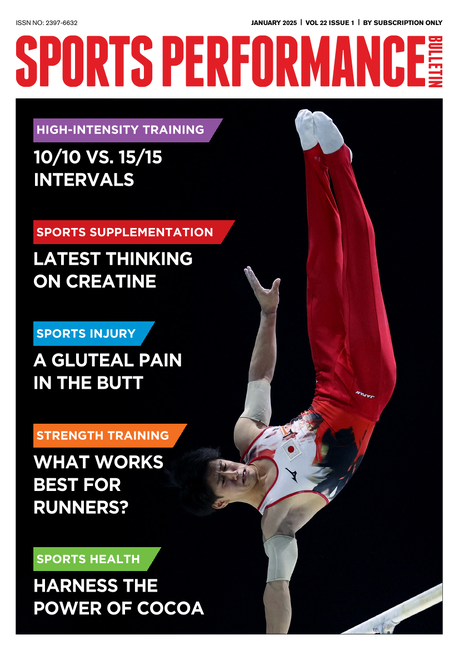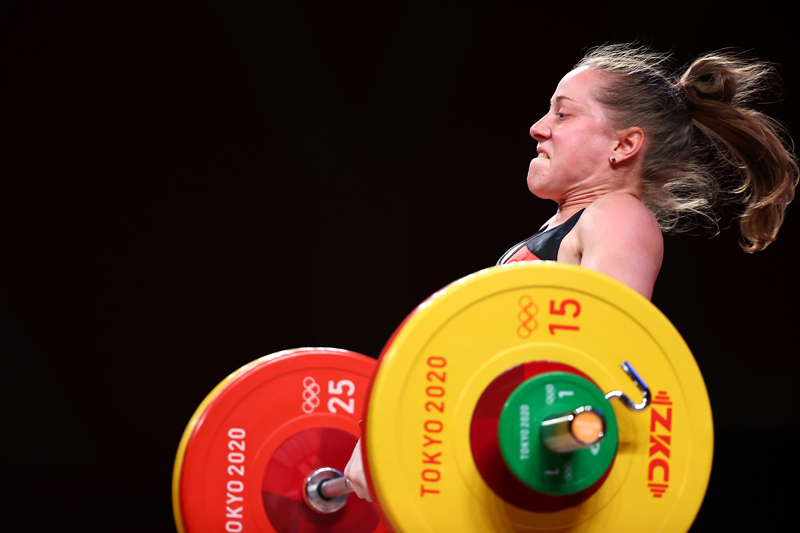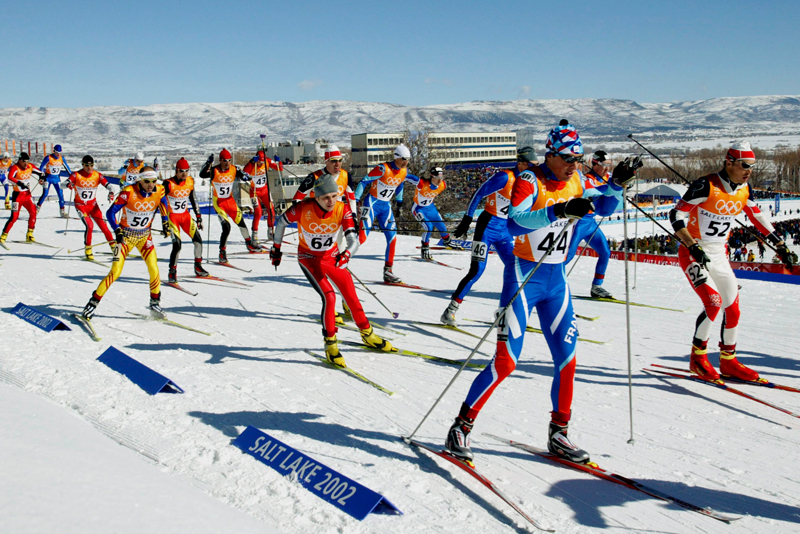You are viewing 1 of your 1 free articles. For unlimited access take a risk-free trial
Human growth hormone (hGH)
Don't waste money - and risk your reputation on human growth hormone; make your own instead!
Drugs continue to be rife in sport, despite the associated risks to health, career and reputation, their use encouraged by ‘designer’ modifications that make them more and more difficult to detect.One group of drugs with large ergogenic effects which continue to pose difficulties in detection are the peptide hormones, incuding EPO, IGF-1 and growth hormone. According to one press report of the time, an empty phial of growth hormone was found in a changing room at the Barcelona Olympics in 1992, fuelling a great amount of speculation on just how widespread this form of drug abuse might be.
In fact, today recombinant human growth hormone (hGH) may well be the drug of choice across a range of sports, from sprinting and other explosive activities to endurance performance. A number of efforts have been made to find a means of catching those who abuse the drug, but even after almost eight years of funding we appear to be no closer to producing a reliable test.
Promoting natural secretion of human growth hormone (hGH)
What many athletes and coaches have failed to understand, however, is that athletes can employ specific training regimens and dietary strategies to optimise their natural secretion of human growth hormone (hGH), so inducing those very adaptations to training that others are cheating to achieve.Human growth hormone is produced in the anterior portion of the pituitary gland, a pea-sized organ suspended just below the brain, which produces no fewer than nine different hormones. Between them these hormones regulate a number of essential physiological functions, including water and energy balance, reproductive activity and the workings of many other glands in the body.
As its name suggests, growth hormone has largely been associated with the function of growth. For centuries scientists believed that puberty was a cut-off point, with human growth hormone (hGH) playing no part in growth or any other function after that. Recent evidence suggests, however, that human growth hormone (hGH) is involved in many physiological processes throughout life, including the turnover of muscle, bone and collagen, the regulation of fat metabolism and the maintenance of a healthier body composition in later life.
A relatively recent discovery is the existence of growth hormone deficiency in adults (GHDA), which has shed further light on the function of this busy little hormone. People with GHDA have a relatively low muscle mass and high body fat, creating a tendency to obesity, an increased risk of heart disease and a greatly reduced exercsie capacity. Treatment of this condition usually requires regular injections of growth hormone.
In general, human growth hormone (hGH) secretion follows a circadian rhythm and is secreted in 6-12 discrete pulses per day, with the largest pulse secreted about an hour after the onset of night-time sleep (around midnight for most people). The release and inhibition of human growth hormone (hGH) are governed by two hypothalamic hormones: growth hormone releasing hormone (GHRH)) and somatostatin. Growth hormone secretion can be triggered by a number of natural stimuli, the most powerful of which are sleep and exercsie.
The fact that exercise acts as a major stimulus for the natural secretion of human growth hormone (hGH) is well known, but there is still little evidence to suggest how this might happen. Various researchers have suggested that it could be triggered by exercise-induced increases in adrenaline, nitric oxide, blood lactate, acidity or nerve activity, either individually or together.
Today there is little doubt that optimising secretion of natural human growth hormone (hGH) is beneficial to sportsmen and women, with none of the many risks associated with hormone abuse, including joint pain, arthritis, abnormal heart growth, muscle weakness, increased blood fats, impaired glucose regulation, diabetes, impotence and, of course, the consequences of breaking the law!
Diet, exercise and sleep patterns all play a role in human growth hormone (hGH) secretion. Since the largest human growth hormone (hGH) surge in a normal day tends to occur around one hour after the onset of night-time sleep, it is vital for athletes to get plenty of it. If the quality of sleep is inadequate there will be a reduction in the volume of human growth hormone (hGH) secreted, with negative consequences for health and fitness. Important preconditions for good quality sleep and optimal human growth hormone (hGH) secretion during sleep include a dark room and a balanced diet containing adequate protein(1). Of course, an adequate quantity of sleep is also required for good health generally, and for most people this means around eight hours.
High-carb diets may be appropriate in many situations but, since hyperglycaemia (elevated blood carbohydrate) tends to switch off human growth hormone (hGH) secretion, this strategy may not be appropriate where optimal adaptation is the priority. Fat taken before exercise has also been found to reduce human growth hormone (hGH) secretion (2).
It is hard to argue against the use of carbohydrate immediately after training in the few days leading up to a competition, when it is important to ensure that carbohydrate stores in the muscles are fully repleted. However, this is not the best strategy for maintaining the release of human growth hormone (hGH) after exercise, particularly if the carbs have a high glycaemic index, as these (sugary) foods stimulate insulin secretion which, in turn, contributes to a reduction in human growth hormone (hGH) (3).
It is also important to drink plenty of water during training, as dehydration has been shown to significantly reduce the exercise-induced human growth hormone (hGH) response (4).
As far as supplementation before exercise is concerned, it has been shown that ingestion of 1.5g of arginine will increase human growth hormone (hGH) secretion by blocking release of the hGH-inhibitor somatostatin, although some studies have suggested this causes gastric disturbance(5). However, 2g of glutamine will lead to elevation of human growth hormone (hGH) 90 minutes later without side effects (6). It may also be a good idea to ingest some amino acids after exercise, as this has been shown to enhance human growth hormone (hGH) secretion too (7).
In terms of training, research has shown that to achieve an elevation of human growth hormone (hGH) above baseline you need to spend at least 10 minutes training at above lactate threshold intensity (8)This results in the biggest volume of human growth hormone (hGH) secreted in response to a single exercise bout, with levels of the hormone declining gradually over a period of an hour. It is also known that multiple daily sessions can give rise to optimal human growth hormone (hGH) secretion over a 24-hour period.
One study investigating the effects of three exercise sessions a day with either 1.5 or three-hour recovery periods between them found that the longer recoveries led to the greatest volume of 24-hour human growth hormone (hGH) secretion (9). Another showed an even larger human growth hormone (hGH) peak in response to sprints on an exercise bike (10).
In the light of the above-mentioned research and current recommendations for both diet and exercise, it might be a good idea to think about ‘periodising’ diet in a similar way to training. During periods of training, when we are trying to increase muscle mass, minimise body fat and maximise the adaptive response to training, it would seem logical to adopt an hGH-enhancing approach, reverting to a high-carb diet before and during competition.
Exercise and dietary strategies
In summary, then, exercise above lactate threshold induces the secretion of human growth hormone (hGH), promoting the use of fat as fuel. This, in turn, spares muscle carbohydrate, keeps body fat down and muscle mass high and enhances adaptation to specific exercise stimuli. The benefits are clear, but simply switching to high intensity work for the whole year is not the answer; rather, a periodised programme, where the number of sprints or higher intensity workouts alters according to the competitive programme, is the best way forward.A suggested exercise and dietary strategy for optimising human growth hormone (hGH) secretion is as follows:
- Exercise – three sessions per week, each involving at least 10 minutes’ work above lactate threshold or a number of sprints, with a 1:3 work-rest ratio;
- Before exercise – no fat for 60 minutes before, 2g glutamine 60-90 minutes before;
- During exercise – plenty of plain water (ie 200 ml every 10-15 minutes if training in 18-21°C);
- After exercise – avoid sugar for two hours post exercise but take 25g protein immediately afterwards in the form of either a protein shake, protein bar, lean meat or eggs (although you should limit your consumption of eggs to avoid too much cholesterol).
References
- Growth hormone and IGF Research 8(suppl B): 127-9, 1998
- Journal of Clinical Endocrinology and Metabolism, 76(6): 1418-22, 1993
- Metabolism 48(9): 1152-6
- European Journal of Endocrinology, 45(4): 445-50, 2001
- American Journal of Physiology; Regulative and Integrative Comparative Physiology 279(4):R1455-66, 2000
- American Journal of Clinical Nutrition, 61: 1058-1061, 1995
- Medicine and Science in Sports and Exercise, 31(12): 1748-54, 1999
- Journal of Endocrinology and Metabolism, 75: 157-162, 1992
- Journal of Applied Physiology, 83(5): 1756-1761, 1997
- European Journal of Applied Physiology, 72: 460-467, 1996
Newsletter Sign Up
Testimonials
Dr. Alexandra Fandetti-Robin, Back & Body Chiropractic
Elspeth Cowell MSCh DpodM SRCh HCPC reg
William Hunter, Nuffield Health
Newsletter Sign Up
Coaches Testimonials
Dr. Alexandra Fandetti-Robin, Back & Body Chiropractic
Elspeth Cowell MSCh DpodM SRCh HCPC reg
William Hunter, Nuffield Health
Keep up with latest sports science research and apply it to maximize performance
Today you have the chance to join a group of athletes, and sports coaches/trainers who all have something special in common...
They use the latest research to improve performance for themselves and their clients - both athletes and sports teams - with help from global specialists in the fields of sports science, sports medicine and sports psychology.
They do this by reading Sports Performance Bulletin, an easy-to-digest but serious-minded journal dedicated to high performance sports. SPB offers a wealth of information and insight into the latest research, in an easily-accessible and understood format, along with a wealth of practical recommendations.
*includes 3 coaching manuals
Get Inspired
All the latest techniques and approaches
Sports Performance Bulletin helps dedicated endurance athletes improve their performance. Sense-checking the latest sports science research, and sourcing evidence and case studies to support findings, Sports Performance Bulletin turns proven insights into easily digestible practical advice. Supporting athletes, coaches and professionals who wish to ensure their guidance and programmes are kept right up to date and based on credible science.









